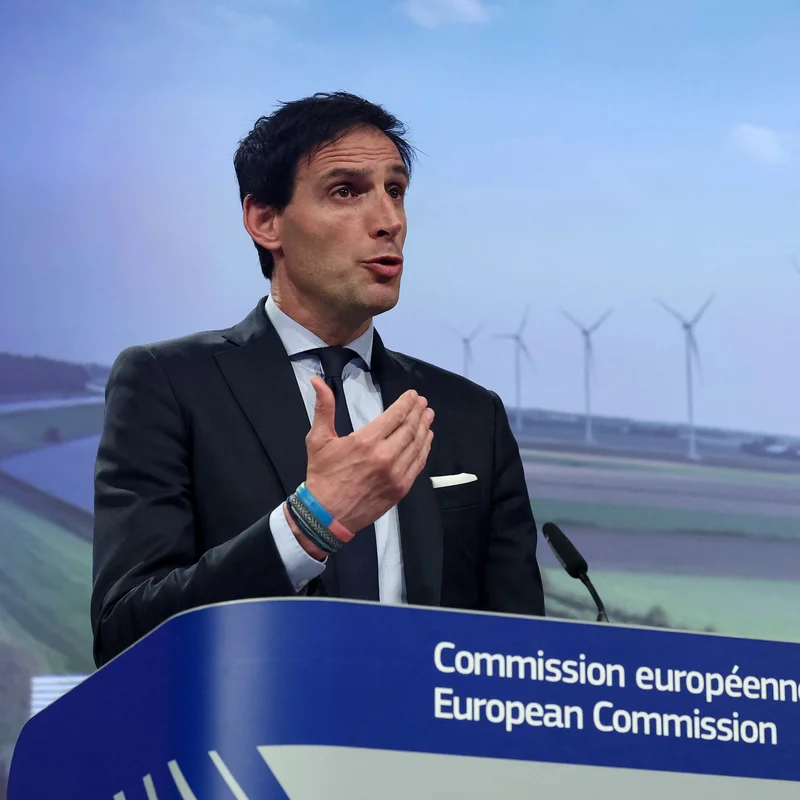Despite President Trump’s dismissal of climate action as “the greatest con job ever,” European Union leaders are pressing ahead with ambitious emissions cuts—and insist the world is not slowing down. In a candid interview during the 2025 United Nations General Assembly, E.U. Climate Commissioner Wopke Hoekstra affirmed that the bloc remains committed to slashing greenhouse gas emissions by 66–72% by 2035 compared to 1990 levels, even as internal negotiations and U.S. policy create headwinds.
Trump’s Climate Isolation Deepens
While 121 countries—including China, India, Brazil, and even oil-rich Saudi Arabia—presented updated climate plans at the U.N. summit this week, the United States was conspicuously absent. President Trump, who pulled the U.S. out of the Paris Agreement for the second time in early 2025, used his UNGA speech to urge nations to “buy more American oil and gas” and abandon renewable energy.
“The world’s most phenomenal geopolitical player, its largest economy, its second largest emitter, is basically checking out,” Hoekstra said in New York.
🌍 Global Climate Momentum in 2025
- 🇨🇳 China: First-ever absolute emissions cut—7–10% by 2035
- 🇪🇺 European Union: Finalizing 66–72% reduction target by 2035
- 🇧🇷 Brazil: Hosting COP30; pushing for global compliance
- 🇺🇸 United States: Not attending climate summit; promoting fossil fuels
EU’s Internal Tensions Threaten Unity
Despite its strong global stance, the E.U. faces internal friction. Member states are divided over the pace of decarbonization, with Germany and the Nordic countries pushing for the upper end of the 72% target, while Poland, Hungary, and parts of Eastern Europe advocate for slower transitions due to economic reliance on coal.
Complicating matters further: a controversial trade deal with Washington. In August 2025, European Commission President Ursula von der Leyen pledged to purchase $750 billion in U.S. fossil fuels by the end of Trump’s term—a move climate advocates say undermines the bloc’s green credibility.
| Policy Area | EU Position (2025) | U.S. Position (2025) |
|---|---|---|
| Paris Agreement | Fully committed; submitting 2035 targets | Withdrawn; no new climate pledge |
| Renewable Energy | Target: 45% of energy mix by 2030 | Rolling back solar/wind incentives |
| Fossil Fuel Exports | Phasing out subsidies | Expanding oil/gas exports globally |
| Carbon Pricing | Emissions Trading System (ETS) active | No federal carbon price |
Why This Matters to North Americans
While the U.S. steps back, the E.U.’s climate leadership has direct implications for American consumers and businesses:
- 🔋 Clean tech competition: EU regulations are accelerating global demand for EVs, batteries, and solar—markets U.S. firms risk losing.
- 💼 Carbon border tax: The E.U.’s CBAM (Carbon Border Adjustment Mechanism) will soon tax carbon-intensive U.S. imports like steel and cement.
- 🌡️ Climate migration: Global instability from extreme weather could increase refugee flows, affecting U.S. foreign policy.
- 💡 Innovation spillover: European green R&D often benefits U.S. startups through partnerships and licensing.
For a deeper look at how U.S. states are filling the federal climate gap, see [INTERNAL_LINK:us-state-climate-action-2025].
China’s Surprising Pivot
Adding momentum to global efforts, China announced its first-ever absolute emissions reduction target at the summit: a 7–10% cut from peak levels by 2035. President Xi Jinping also pledged to sextuple wind and solar capacity and make electric vehicles “mainstream.”
“In the absence of the U.S. and E.U., China will be the only game in town,” said Li Shuo of the Asia Society Policy Institute—highlighting a potential shift in green geopolitical influence.
The Road to COP30
With just six weeks until the COP30 climate talks in Belém, Brazil, pressure is mounting for nations to finalize their 2035 targets. “It’s time to ask whether the world will arrive in Belem with its homework done,” said Brazilian President Lula da Silva.
Hoekstra remains optimistic: “Trump’s actions show no signs of affecting other countries’ ambitions—including ours.”
Learn more about global climate policy from the UN Framework Convention on Climate Change.




